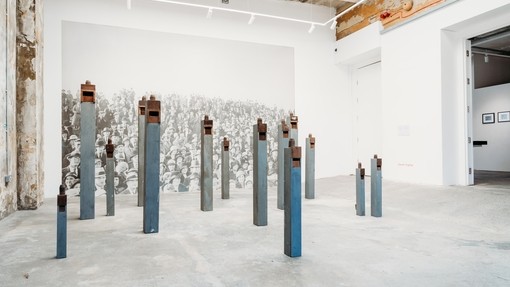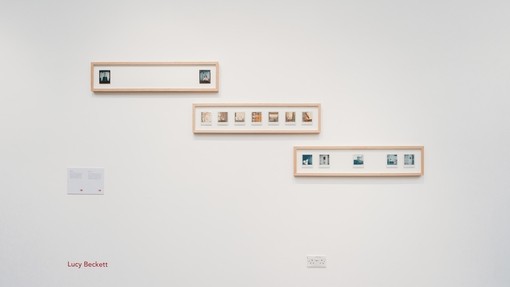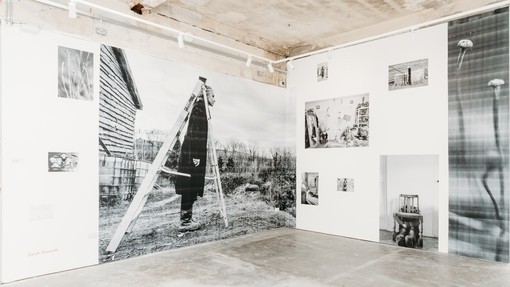Documentary Photography and Visual Activism (Full-time) (BA Hons)
The Documentary Photography and Visual Activism degree programme is the first of its kind in the UK. As documentary photographers and visual activists, you will be encouraged to re-evaluate and challenge the history and conventions of photography. You will develop an increased awareness of the power structures inherent in photography.
The course contemporise’s traditional, practical, documentary, and photojournalistic skills through an emphasis on the medium as a social rather than an individual process. You will be supported to become advocates for the causes you are most passionate about, and to become fully engaged in investigating your chosen subject areas. At the core of the course is a focus on the ethical responsibility of the photographer and an awareness of the implications implicit in the act of representation.
During the course, you will be encouraged to work collaboratively within the local community and to think about your wider role and responsibilities as active citizens and what this means for a democratic society.
This course embraces photography in its broadest sense, engaging with the latest technology to harness the potential of new digital media.
Course details
- On-campus
- Full-time
- English
- Bilingual
Tuition Fees 2023/24 and 24/25
Home (Full-time): £9,000 per year
Overseas (Full-time): £13,500 per year
Why choose this course?
What you will learn
YEAR ONE
In your first year the focus is on developing your practical and technical skills to provide a foundation to investigate subjects of personal interest. Areas covered include:
- Traditional darkroom techniques
- How to use Adobe software packages
- Professional studio and location lighting techniques
- How to respond to set briefs
- How to combine both analogue and digital skills to create innovative outcomes
- The history of photography and visual culture theory
YEAR TWO
Building on the skills developed in your first year, the second year is a time for further experimentation and collaborative working:
- Working in small groups to design and curate your own public exhibition
- Conceptualise and produce a photobook
- Have opportunities to undertake funded internships
- Become increasingly focused on developing a professional platform for your work (including: website/social media/exhibition strategies)
- Experiment with alternative darkroom processes
- Have the option to study a semester abroad
- Apply your research and critical analysis skills to a major project proposal
YEAR THREE
Your third year is about developing your professional portfolio and equipping yourself for a professional career in the creative industries after graduation:
- Develop a self-directed major project/body of work
- Produce work for collective exhibition in Swansea and London
- Have opportunities to present your work to industry professionals
- Have developed technical and creative skills to industry level
(20 credits)
(10 credits)
(10 credits)
(20 credits)
(10 credits)
(10 credits)
(20 Credits)
(10 credits)
(20 credits)
(10 credits)
(20 credits)
(20 credits)
(10 credits)
(10 credits)
(20 credits)
(40 credits)
(60 credits)
Course Page Disclaimer
-
We listen to student feedback and insights from industry and from professionals to ensure that course content is high-quality and up-to-date, and that it offers the best possible preparation for your future career or study goals.
For this reason, there might be modifications to the content of your course over time, to keep up to date with changes in the subject area or in the sector. If a module is no longer running, we’ll make sure to keep you informed, and work with you to choose a different suitable module.
testimonial
Staff
Our People
You will be taught and supported by a wide range of professional staff and teams here to help you get the university experience you are looking for. Our teaching staff were ranked 2nd in Wales for assessments and feedback (NSS 2023) meaning the comments you get back from your work will help you learn. Our commitment to your learning has seen our students place us as Top 10 in the UK for Lecturers and Teaching Quality. Find out more about our academic staff who teach across our courses.
Accommodation
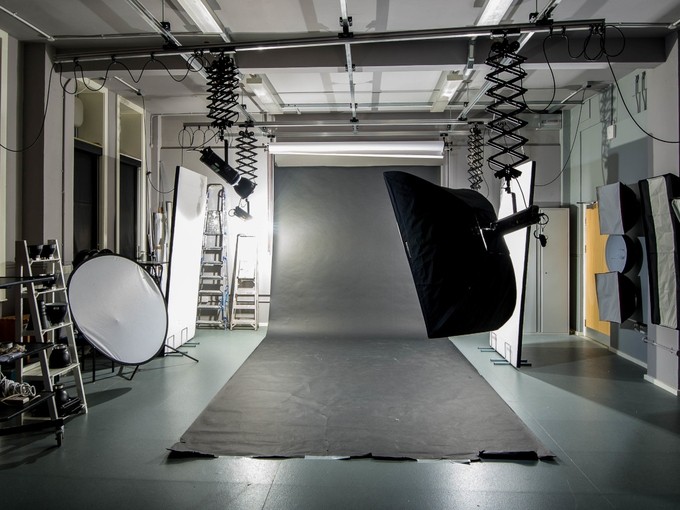
Photography Facilities
As a student at Swansea College of Art, you will have access to industry standard facilities and store facility. In addition to extensive traditional photography facilities and darkrooms, our digital provision includes a specialist colour-managed digital suite running the latest Adobe software. This includes high resolution Hasselblad film scanners, medium and large format portfolio and exhibition printing.
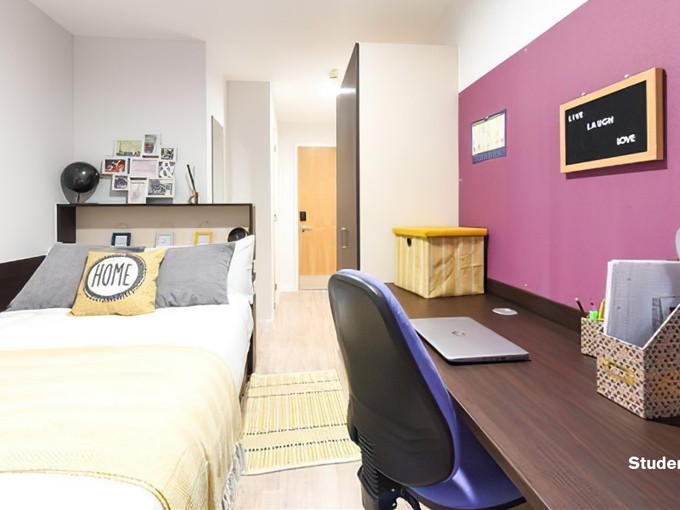
Swansea Accommodation
Swansea has a huge student population, and the variety of accommodation available will leave you feeling spoilt for choice. Various purpose-built student accommodation providers provide accommodation in Swansea, and the accommodation team can guide you through your options. It will offer ongoing support throughout your time as a UWTSD student.
Documentary Photography Gallery
Further information
-
The Documentary Photography and Visual Activism course is open to those with an interest in the media, politics and social change; some previous knowledge of photography is advantageous but not essential.
We are interested in creative people that demonstrate a strong commitment to art and/or design, and therefore we welcome applications from individuals from a wide range of backgrounds. To assess student suitability for their chosen course we arrange interviews for all applicants at which your skills, achievements and life experience will be considered as well as your portfolio of work.
Our standard offer for a degree course is 120 UCAS tariff points. We expect applicants to have a grade C or above in English Language (or Welsh) at GCSE level, together with passes in another four subjects. Plus we accept a range of Level 3 qualifications including:
- Foundation Diploma in Art and Design, plus one GCE A-Level in a relevant academic subject
- Three GCE A-Levels or equivalent
- UAL L3 Extended Diploma in Art and Design.
- UAL L3 Applied General Diploma and Extended Diploma in Art and Design.
- UAL L3 Diploma and Extended Diploma in Creative Practice: Art, Design and Communication.
- UAL L3 Extended Diploma in Creative Media Production and Technology.
- BTEC Extended Diploma in a relevant subject
- International Baccalaureate score of 32
- Other relevant qualifications can be considered on an individual basis
Qualifications are important, however, our offers are not solely based on academic results. If you don’t have the required UCAS points then please contact the courses admissions tutor or email artanddesign@uwtsd.ac.uk as we can consider offers to applicants based on individual merit, exceptional work, and/or practical experience.
-
Assessment varies according to the module and ranges from portfolios, exhibitions, written assignments and blogs to presentations.
-
Our students have access to a diverse range of equipment and resources, which in most cases are sufficient to complete their programme of study. We provide the basic materials necessary for students to develop their practical work within our extensive workshop and studio facilities.
However, it is likely that art and design students will incur some additional costs to extend their investigation of their personal practice. For example, purchasing their own specialised materials and equipment, joining in optional study trips, and printing.
Students are expected to bring their own personal art and design equipment with them when they commence the course. We can advise on the correct equipment needed for your programme of studies and signpost appropriate suppliers if you wish to purchase essential items before or during your studies.
A basic art and design kit will cost approximately one hundred pounds, but you may already have much of the equipment required: check with us first. Also, although we have extensive dedicated digital design studios (PC and MAC) for you to use for your coursework, you may wish to bring your own digital devices. Again, please check with us first before making a purchase.
Depending on distance and duration, optional study visits can vary in cost from approximately ten pounds to visit local galleries and exhibitions to over two hundred pounds for overseas visits — these costs cover things like transport, entry to venues and accommodation, and are normally at reduced rates for our students.
-
You may be eligible for funding to help support your study. To find out about scholarships, bursaries and other funding opportunities that are available please visit our Scholarships and Bursaries section.
-
Visit Go Global with UWTSD for more information about studying abroad.

